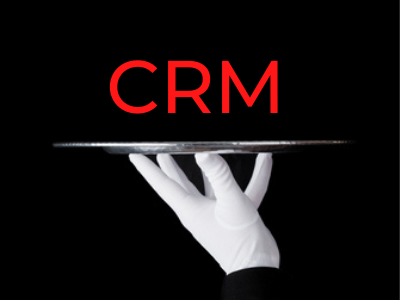Seven Secrets for Driving CRM Adoption Success

Download a PDFAre your professionals using the CRM system? If not, it’s time for a new approach to gaining adoption. These tips can help your team see value and benefits in CRM – and may even get them to use it.
CRM isn’t easy. There can be a lot of challenges – from selecting the right system to rolling it out effectively, to integration with other systems, to maintaining system data quality. But one of the most common – and critical – pain points experienced by most firms – and, in fact, most organizations – is low CRM adoption.
In the past, CRM adoption was gauged by whether we could get a majority of the attorneys to actually access the system on a regular basis. Sounds like an obvious definition, right? But after more than 20 years of firms trying and, more often than not, failing to get (or nudge, entice, induce, coax, cajole, incentivize and even beg) their attorneys to use the CRM to enter contacts, activities or other important information, it just hasn’t happened.
So, after 15 years of working together with hundreds of top firms, we believe it may just be time for a new – and more realistic – definition of adoption. To define and achieve CRM success in professional services firms, we propose that CRM adoption should now be measured by the value that the firm and attorneys get from the system.
But how should we define this value? Here are seven tips to help you gauge and/or get more value from your CRM investment:
Manage Expectations
Respected researchers suggest that up to 70% of CRM implementations fail to meet expectations. What they don’t tell you is that often it’s because the expectations are wrong. It’s important to understand attorneys’ expectations of CRM – and then manage those expectations with reality checks as needed.
Communicate and Educate
Training and communications are critical to success. Don’t just focus on features and functions. Instead educate and communicate how the system can help to solve problems, automate processes, enhance business development efforts and make everyone’s lives easier.
Strategy Before Selection
Often firms are unaware that to achieve success they need to develop a CRM strategy before selecting a CRM system. Selecting the right technology requires a thorough assessment of firm and attorney needs and requirements. Additionally, goals should be defined and metrics for success established. Only then should you go CRM shopping.
Don’t Forget Key Constituencies
While key partners and other firm leaders are important, don’t overlook these other critical groups who can contribute to the firm’s CRM success:
- Admins/Secretaries… often serve as proxies for the attorneys and frequently do the heavy lifting with contact data and list management. Get them involved early and often. Show them how CRM can make their lives easier, and you will win them over – and you may even win over their attorneys as well.
- Associates… are often younger and more engaged in technology than senior attorneys. They are the future of the firm, and CRM is a tool that can help them contribute and be more successful. As a smart managing partner once told us, “We may not get all the partners to use the CRM, but we are going to require associate participation because then, in a few years, we won’t have adoption problems because using the system will be part of our firm culture or DNA.”
- Laterals… sometimes come from firms that are larger or more tech savvy, and they bring their past CRM experience – and expectations – with them. If your firm wants to get, and keep, a competitive edge, you must provide them with the technology they need to identify relationships and cross-selling opportunities.
If you’re still struggling with CRM adoption challenges, taking a “white glove” approach can help. Customize training for the attorneys’ specific needs and ensure they’re getting value.
Training
Educate your attorneys on best practices for using CRM to engage with their clients and contacts and show them how CRM will make that easier. Nudge them from being passive consumers of the data in the CRM to active contributors by making the connection for them between contributing and getting more value out of the system. Show them how to identify targets, access meeting notes, get updates on pursuits/wins/losses, or view client feedback.
Training is not a one-time event. Invest in training throughout the year.
Pilot Groups
There’s no such thing as a one-size-fits-all CRM rollout. Adapt the technology to meet specific needs and to deliver value for specific user groups. Start with one group with a strong leader and some specific or immediate needs. Configure CRM to meet the needs or solve problems and train the group around that. Then move on to the next group.
“White Glove” Service
It’s in the DNA of law firm culture, so make CRM a “white glove” service as well. Law firms are different from other organizations. The partnership structure makes the carrot and stick approach ineffective. So don’t make CRM a chore, make it a value add. Here are some recommendations:
- First, it’s helpful to step back and understand what is coming at the attorneys on a daily basis. They may be interfacing with more than ten different systems, e.g., time and billing, practice management, document management and others. CRM can become the one place to get all or most of what they need and allow them more time to be lawyers. Look for CRM systems that include customizable dashboards to personalize their daily view.
- Engage your marketing staff to meet one-on-one with the attorneys to gather their contact data and information, then generate the reports they need. Show them how to gain value and insights from the information in the CRM.
- Sync the attorneys’ Outlook calendars with CRM. Then Marketing can be alerted to upcoming meetings and step in to provide meeting prep materials, who-knows-who info, past matters info, and other intelligence. And after meetings, attorneys can be prompted to add their meeting notes in CRM.
- Engineer the system to remove extra steps and friction. Make it easy for the attorneys to maintain engagement with their clients by providing a regular, “built-in” cadence for keeping in touch.
- Maintain clean CRM data. Remember, data quality is important only if you want to succeed with CRM! Attorneys are trained to find problems, and they will notice if the data is bad (and may mistrust the CRM system and the team responsible for it.) Make it a top priority to gather attorneys’ contact information, apply a regular data cleaning process, and make it easy for them to get quality data and value out of the CRM.
The keys to CRM adoption success are not difficult to understand, but they will vary for each firm. The common, essential thread is always the “value exchange.” If you make it easy for your attorneys to contribute value – and ensure they are getting value out of the CRM – adoption and CRM success will follow.
For more than a decade, the team at CLIENTSFirst Consulting has been helping professional services firms and other organizations successfully select and implement CRM and eMarketing systems and improve Data Quality to maximize value, adoption and return on investment. If you need help achieving CRM Success, please contact us at 404-249-9914 or Info@ClientsFirstConsulting.com.






